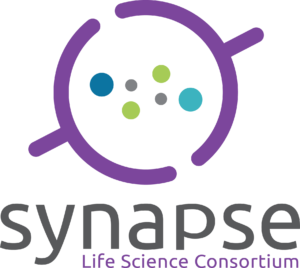Mar-2024
Success stories inspire the next generation of unicorn founders
Blockbuster AstraZeneca-Fusion Pharmaceuticals announcement shows Hamilton’s life science innovation ecosystem is thriving
Hamilton, Ontario, March 28, 2024 – The day after news broke of AstraZeneca’s $2.4-billion bid to buy Hamilton-based Fusion Pharmaceuticals Inc., a radiopharmaceutical company focused on prostate cancer, it was only fitting that the region’s business leaders and stakeholders were gathered to celebrate the next generation of health science entrepreneurs at Innovation Factory’s (iF) 11th annual Synapse Life Science Pitch Competition.
Success stories like Fusion’s are one of the key pillars of a successful life science ecosystem, said Amr Abdelgawad, COO of FluidAI Medical, who delivered a keynote presentation at the pitch competition showcase on March 20.
“One success story can inspire 10 more, and those 10 could inspire a hundred more,” said Abdelgawad, reflecting on his entrepreneurial journey that began with an idea nearly a decade ago, while he and FluidAI cofounder Youssef Helwa were undergraduates at the University of Waterloo.
After finishing second in the Synapse Competition in 2019 (when the business was known as NERv Technology Inc.), the pair went on to build a medical technology company that today employs over 50 people and recently announced a $25-million investment to improve their AI-powered post-operative fluid monitoring device and expand their manufacturing capacity.
“iF’s Synapse Competition in 2019 was a key moment for us. That was a time when we were going through a major pivot and a major transition in terms of product design,” Abdelgawad said.
‘Overnight Success’ Stories More Than a Decade in Making
The success of companies like FluidAI and Fusion Pharma is a clear signal of Hamilton’s dynamic life science ecosystem, said Alex Muggah, Director of the Synapse Life Science Consortium.
“The Fusion story is a proof point that Hamilton is a great place to start and grow a business, where we’re transforming and translating world-class intellectual property into products that could fundamentally change the way that healthcare is delivered, and have a meaningful commercial impact,” said Muggah. “Fusion’s success was no accident but the result of a concerted effort, starting with an initial spark lit and fueled right here in Hamilton.”
Spun out of McMaster University in 2017 by Dr. John Valliant, Fusion benefited from local infrastructure including a cyclotron that produces isotopes on the McMaster campus, investment support from Ontario’s FACIT seed funding program, as well as the McMaster Innovation Park, where the company built its manufacturing facilities.
“It’s an overnight success, 10 years in the making,” Muggah said. “We’re excited observers of the Fusion story. Now we’re going to take a breath and celebrate their achievement, but we’re not done. We’re going to put our heads down and get back to work building companies. Success stories like this serve as inspiration for the next generation of entrepreneurs and innovators, those who grew up in Hamilton and those who are thinking of moving to Hamilton to start their ventures.”
Through the proactive efforts of organizations like Innovation Factory, the Forge, and the Synapse Consortium, the Hamilton life science ecosystem has helped hundreds of start-ups and scale-ups achieve their goals through collaborative programs like the annual pitch competition.
Muggah said while billion-dollar deals are rare, many early-stage companies such as VoxNeuro, Allarta Life Science, and Elarex are making an impact in the health science sector and have benefitted from the support of Hamilton’s life science ecosystem. Others are making a bigger splash, such as AtomVie Global Radiopharma, which raised over $90-million to build a 70,000 sq. ft. radiopharmaceutical manufacturing centre in Hamilton, and OmniaBio, the anchor tenant in a $580-million cell and gene therapy manufacturing facility being built in the McMaster Innovation Park.
“We can draw a direct line between the ecosystem’s support to companies that, a couple of years ago, were just ideas — little more than napkin scribbles — that have gone on to raise hundreds of millions, which is put back to work in the Hamilton region,” Muggah said. “FluidAI, although it’s based in Kitchener-Waterloo, is one of a constellation of companies that have been supported and nurtured to grow by leveraging the infrastructure and capabilities of the Hamilton ecosystem, and then right next door we have Fusion as the shining star example of what Hamilton can accomplish on the global stage.”
Abdelgawad said organizations like Innovation Factory and the Hamilton ecosystem have provided connections, resources and mentorship, including invaluable and timely support, especially when it came to reaching out to clinicians and researchers who could help with clinical trials.
“We’re truly grateful for the support of everyone. It really does take a village to help grow a company or a start-up from an idea all the way to getting a product to market.”
